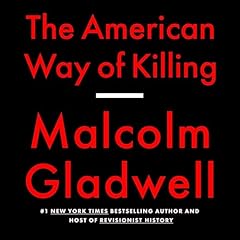
Outliers
The Story of Success
Failed to add items
Add to Cart failed.
Add to Wish List failed.
Remove from wishlist failed.
Adding to library failed
Follow podcast failed
Unfollow podcast failed
Audible Standard 30-day free trial
Buy for $22.49
-
Narrated by:
-
Malcolm Gladwell
-
By:
-
Malcolm Gladwell
In this stunning book, Malcolm Gladwell takes us on an intellectual journey through the world of "outliers"—the best and the brightest, the most famous and the most successful. He asks the question: what makes high-achievers different?
His answer is that we pay too much attention to what successful people are like, and too little attention to where they are from: that is, their culture, their family, their generation, and the idiosyncratic experiences of their upbringing. Along the way he explains the secrets of software billionaires, what it takes to be a great soccer player, why Asians are good at math, and what made the Beatles the greatest rock band.
Brilliant and entertaining, Outliers is a landmark work that will simultaneously delight and illuminate.
Listeners also enjoyed...




















Critic reviews
Featured Article: The Best Nonfiction Audiobooks to Jump into Right Now
The best nonfiction audiobooks take involved, often intimidating subjects and reinvigorate them with sharp narration so you can stay focused and on track. In this list, we’ll share our picks for some of the best nonfiction audio out there, encompassing a wide array of topics—from the entire history of humanity to astrophysics to the American prison system. Engage with some of the most fascinating, deeply human real-life stories our catalog has to offer.
People who viewed this also viewed...


















Excellent!
Something went wrong. Please try again in a few minutes.
Another Great Book from Gladwell
Something went wrong. Please try again in a few minutes.
Outliers The Story of Success
Something went wrong. Please try again in a few minutes.
Excellently written and Nicely narrated.
Liked it even better that Blink and Tipping Point.
Just as good if not better than Freakanomics.
MUST LISTEN book
Absolutely Great Book - Scientist's Must Read
Something went wrong. Please try again in a few minutes.
Outliers
Something went wrong. Please try again in a few minutes.




